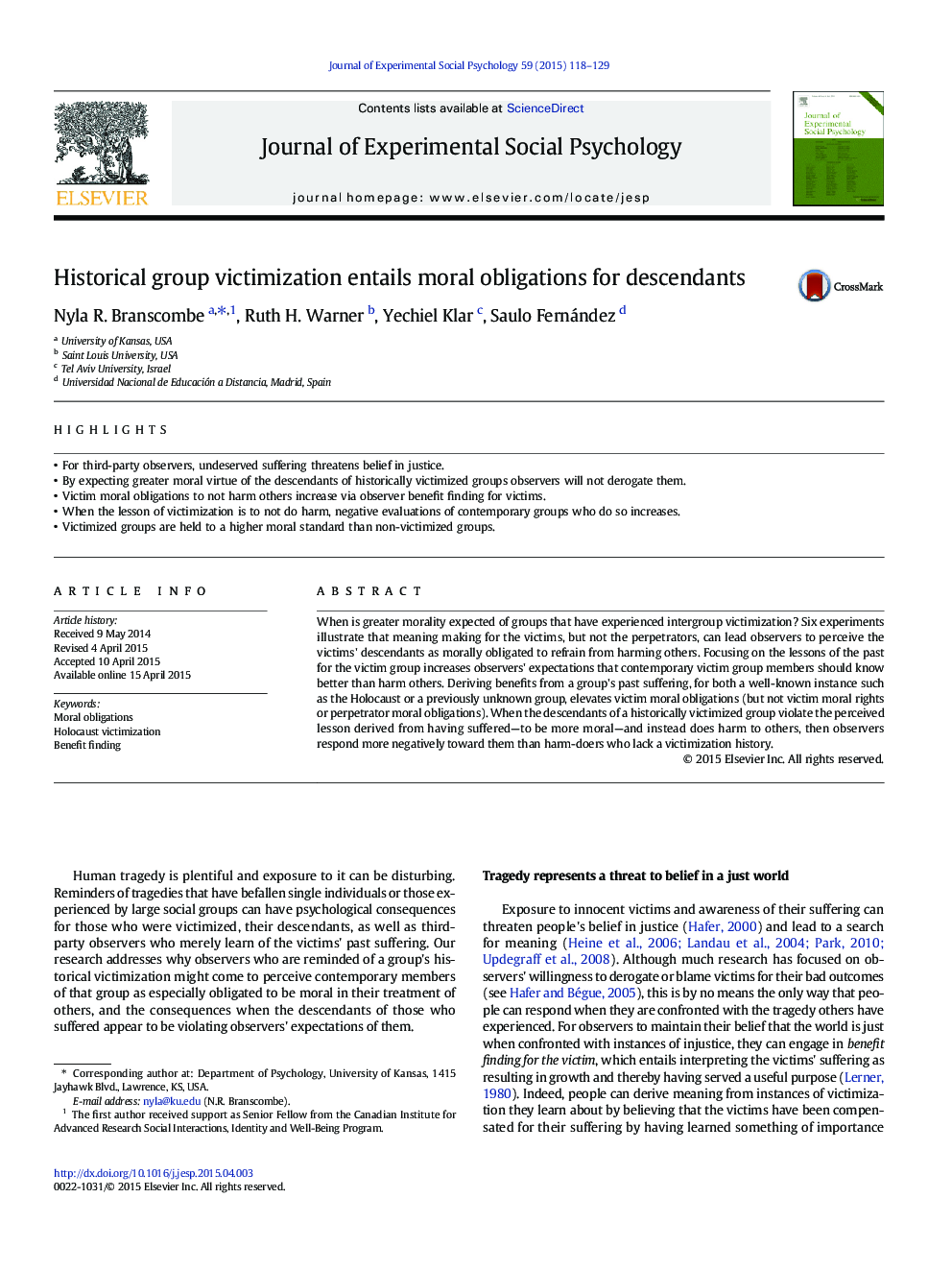| Article ID | Journal | Published Year | Pages | File Type |
|---|---|---|---|---|
| 947712 | Journal of Experimental Social Psychology | 2015 | 12 Pages |
Abstract
When is greater morality expected of groups that have experienced intergroup victimization? Six experiments illustrate that meaning making for the victims, but not the perpetrators, can lead observers to perceive the victims' descendants as morally obligated to refrain from harming others. Focusing on the lessons of the past for the victim group increases observers' expectations that contemporary victim group members should know better than harm others. Deriving benefits from a group's past suffering, for both a well-known instance such as the Holocaust or a previously unknown group, elevates victim moral obligations (but not victim moral rights or perpetrator moral obligations). When the descendants of a historically victimized group violate the perceived lesson derived from having suffered-to be more moral-and instead does harm to others, then observers respond more negatively toward them than harm-doers who lack a victimization history.
Keywords
Related Topics
Life Sciences
Neuroscience
Behavioral Neuroscience
Authors
Nyla R. Branscombe, Ruth H. Warner, Yechiel Klar, Saulo Fernández,
